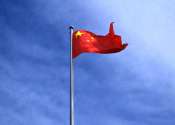France, Germany block EU deal on scaled-back app worker law
France and Germany on Friday refused to back a watered-down agreement on controversial EU rules covering app workers in the gig economy, European diplomats said.
Feb 16, 2024
0
1
Business

France and Germany on Friday refused to back a watered-down agreement on controversial EU rules covering app workers in the gig economy, European diplomats said.
Feb 16, 2024
0
1
Business

Founded 20 years ago as a simple hangout spot for young people, Facebook has since become a battle-hardened behemoth that—despite perceptions of being for boomers and parents—continues growing and growing.
Feb 1, 2024
0
1
Internet

More than 50 countries are set to hold national elections this year and analysts have long sounded the alarm on the threat of bad actors using artificial intelligence (AI) to disseminate and amplify disinformation during ...
Jan 23, 2024
0
22
Internet

ChatGPT maker OpenAI has said it will introduce tools to combat disinformation ahead of the dozens of elections this year in countries that are home to half the world's population.
Jan 16, 2024
0
5
Business

Meta on Thursday warned that deceptive online campaigns based in China were taking aim at 2024 elections in the United States and elsewhere.
Nov 30, 2023
0
7
Business

On Monday US President Joe Biden released a wide ranging and ambitious executive order on artificial intelligence (AI)—catapulting the US to the front of conversations about regulating AI.
Oct 31, 2023
0
12
Internet

In the 2018 documentary "The Cleaners," a young man in Manila, Philippines, explains his work as a content moderator: "We see the pictures on the screen. You then go through the pictures and delete those that don't meet the ...
Oct 24, 2023
0
1
Software

Video games are easy to exploit, and are being used by actors ranging from IS and Hezbollah for recruitment, to Russia, who use it to spread propaganda during the ongoing invasion of Ukraine. This according to a new report ...
Oct 23, 2023
1
10
Business

Taiwanese tech giant Foxconn is under tax and land use investigations at several of its sites in China, state media reported on Sunday.
Oct 22, 2023
0
1
Internet

As a global election season widely expected to be mired in misinformation and falsehoods fast approaches, the big US-based tech platforms are walking back policies meant to curb them, stoking alarm.
Sep 26, 2023
0
1
An election is a decision-making process by which a population chooses an individual to hold formal office. This is the usual mechanism by which modern representative democracy fills offices in the legislature, sometimes in the executive and judiciary, and for regional and local government. This process is also used in many other private and business organizations, from clubs to voluntary associations and corporations.
The universal use of elections as a tool for selecting representatives in modern democracies is in contrast with the practice in the democratic archetype, ancient Athens. Elections were considered an oligarchic institution and most political offices were filled using sortition, also known as allotment, by which officeholders were chosen by lot.
Electoral reform describes the process of introducing fair electoral systems where they are not in place, or improving the fairness or effectiveness of existing systems. Psephology is the study of results and other statistics relating to elections (especially with a view to predicting future results).
This text uses material from Wikipedia, licensed under CC BY-SA